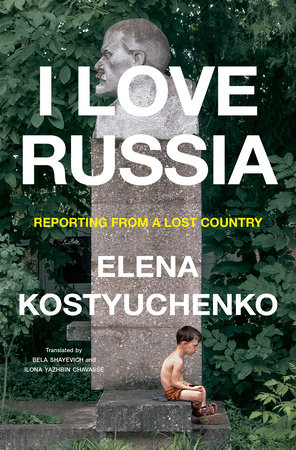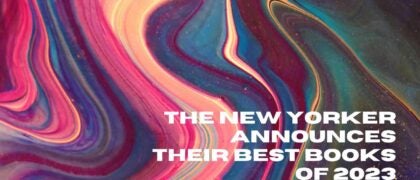Chapter 1The Men from TVI don't remember myself as an infant, my memories begin from the time I am four, maybe three. I remember the silhouettes bending over me, or maybe I just think I do. I remember my grandma, she died when I was five, which must mean I have memories from when I was younger. Babushka would make fun of me and slap my hand and then laugh. She wasn't always all there, she was sick. When madness came over her, she would get shy and searching. She thought she was living with strangers and would become eager to make us like her. When she regained her senses, she'd turn back into the woman who had for many years been-and remained-the head of the household. She was accustomed to being obeyed and demanded obedience.
I was sick all the time, I'd always get colds. I rarely went out. In my memory, it's always twilight. A new building was slowly rising up in front of our windows, rising to block out the light. In the right corner of the room we lived in, there was a piano for me to grow into. Mama hoped I would one day learn how to play. In the left corner, there was the television. It worked, but the picture was fuzzy, shot through with static, making it look black-and-white.
The television was huge, or it seemed huge to me, with a bulging silver-gray screen made of thick glass. Dust adored it. I would pull up a chair, climb onto it, and brush the screen with my fingers. It felt like touching a moth's wings, ever-so-gently. Mama would say: that's the static.
I waited for evening for my allotted pleasure. That's when
Good Night, Little Ones! would come on. The puppets, a piglet named Khryusha and a bunny named Stepashka, would talk to each other, and then they would play a cartoon. I loved the hand-drawn animations, but sometimes they'd be stop-motion instead, clay or just dolls. Those seemed like a sad waste of the magic of television. I could play with dolls all by myself.
I noticed that Mama turned on the TV before it was time for
Good Night. She came home from work, hung up her trench coat, and sat down on the couch, still in her shoes. She'd wait a few minutes for her feet to "settle" and then she'd get up and plod over to the TV to turn it on. It'd be a show about grown-ups or news.
I hated the news and didn't understand how anybody could voluntarily watch it. The pictures that broke through the grainy broadcast were mystifying. People yelled, went places, there were identical anchors with identical intonations. I couldn't understand what they said. Mama watched them in silence. She was so tired.
Little by little, I was figuring out what was going on. One day, Mama told me our country used to be called the USSR, but now it was Russia. It had been better in the USSR: there was a lot of food, people were kind to each other. Now things were different. Later, I learned that Mama had been a chemist, but the institute where she had worked no longer paid money, so she became a cleaning woman and teacher and also washed diapers at my preschool. This was why she was so tired and didn't play with me and didn't hug me as much as I wanted. I asked her whose fault it was that the USSR had turned into Russia. Mama said Yeltsin. Who's Yeltsin? The president. What is the president? The most important person in the country.
Mama pointed him out to me on the news. The most important person in our country was ugly and old, with a giant head. I didn't understand what he was saying. He mumbled just like my grandma did when she was sick, stretching his words.
I'd watch him and think, It's your fault that my mama is tired. That she drags her feet when she walks like she's old. That she doesn't play with me and doesn't hug me as much as I want. That people used to be kind and live in the USSR, and now we live in Russia, and Russia is worse. When Yeltsin appeared on the screen, I'd furrow my brow and say, Yeltsin is bad. And Mama would smile. I started watching the news with Mama and yelling at Yeltsin just so I could see her smile.
Sometimes Mama's friends from the institute would come over. They'd sit in the kitchen and I would be underfoot. Whenever anyone mentioned Yeltsin, I'd perk up my ears. And then, in the next available pause, I would add, "Yeltsin is bad." The grown-ups laughed. They'd say, "Your little girl is so grown up." The grown-ups told me that Yeltsin was also a drunk. And so I started saying, "Yeltsin is a bad drunk." The grown-ups laughed at this, too.
The older I got, the more I could understand the news. Miners were beating their helmets against a bridge in Moscow. Mama sent the miners money, she said they were starving. Chechens were fighting with Russians. I was afraid of Chechens, I thought they were all scary bad guys with beards, just like pirates. I wished I could see one of them in real life. Then came the criminals. I never saw them but I would hear them. Sometimes, there would be shooting outside. Mama would say, Stay away from the window.
When I was five, I found out that we were all going to die. Even Mama. A little while later, I realized that Mama might not die of old age sometime in the future, she could die any moment because of the criminals. I started being scared of the night. Evil came closer at night, darkness opened the door to it. I would get up on the windowsill and stare into the darkness. I believed that my gaze lit Mama's way home and protected her. Sometimes, the terror would overwhelm me. Then I would take out our tin of old buttons and pore through them all like they were treasure. The buttons protected me from the terror a bit.
When I was in third grade, I finally saw the criminals up close. I was taking a shortcut home, through the courtyards, instead of taking the streets. Mama said never to do that, but I was in a hurry. I came upon three men and another one with them, but somehow apart. I remember them wearing black leather trench coats, but I probably made that up. One of the three men was swearing and then another one got out a gun. It was small and very black. I ducked into the nearest building to wait out the shooting. Two gunshots. I waited a little while longer, then peeked out of the doorway. The man who had been standing apart was curled up on the ground. Behind his ear, there was red. I couldn't see the criminals anymore. I made a wide arc around the man, then ran home. I didn't tell Mama. I knew that worrying could make the heart stop, and, with all of my little body, all I wanted was for Mama to live.
The criminals were because of Yeltsin, and so was the darkness outside the window, and all the long evenings waiting for Mama, and how we never had enough money-I knew what money was now, how much it cost. We didn't always have food. When I was nine, I joined a choir, we'd sing in hospitals and Houses of Culture. They paid choir members 30 rubles a concert, 60 for soloists. I wanted to be a soloist. Sixty rubles could get us seven loaves of bread.
I would ask Mama, If the USSR was such a good country, why didn't you stand up for it? Mama would say, We were deceived. Yeltsin lied to us.
I began watching the news with a voracious rage. I was impatient for Yeltsin to die. They would definitely show that on the news.
But: he kept not dying. Other people were dying. There were constantly funerals, coffins upholstered in red were continually being carried out into our courtyard. I would go up to our neighbors and ask, Why did he die? Why did she die? Alcohol poisoning, hanging, shooting, being murdered during a robbery, dying in a hospital that didn't have any drugs or doctors. My mama lived, my gaze protected her. Sometimes I'd bargain with God. I'd tell him, If Mama dies and I go off to live in the forest, what are You gonna do then?
When I was in seventh grade, here is what Yeltsin did. On New Year's Eve, while Mama and I were having our holiday dinner, he came on TV and he said, "I am tired. I'm stepping down." And with that, he stopped being the president. It was a New Year's Eve miracle. Mama cried and laughed and called all her friends and I thought, Finally. Now our new life would begin.
Six months later, there were elections. Vladimir Putin won. Putin was nothing like Yeltsin, he was athletic and young, with clear eyes. The eyes were the only memorable thing on his face. He had a special voice, it always sounded like he was restraining a growl. But when he smiled, everybody around him was very happy.
Mama didn't vote for Putin. She said he was KGB. I knew what KGB agents were, two of them had apartments across the way. They were maniacally suspicious, they drank a lot and weren't friendly. We didn't talk to them much.
On the day of the election, I went out to the courtyard to play. People were coming home from the polling places and asking each other, Did you vote for Putin? Me too. People would ask me about my mother. I would say, No, we're for the communists. Boys from our courtyard told me the communists were all rotting in their graves. We almost got into a fight.
People believed that Putin was going to protect them. Before the elections, buildings were blown up in several cities. We learned the term
terrorist attack. Men from our building took turns doing night shifts, making sure that nobody wired our house with explosives. Putin said that we simply needed to kill all the terrorists and then the buildings would stop blowing up. He started a new war in Chechnya. I started washing floors. I was almost a grown-up now and I wanted to make some money so that my mother could be less tired. I'd get so tired, I would come home and do exactly what Mama did: go and sit down on the couch with my shoes on until my feet "settled." Mama didn't get mad.
Our television kept getting worse; it became hard to make out the faces in the black-and-white static. I started reading newspapers, we had them at our school library. I got obsessed with them-the pictures didn't change, you could think while you read. I decided to go work at one. The pay was no worse than washing floors. I wrote about bus pass scams, a teen health clinic, the skinheads that had appeared in our city. I was proud I was writing about grown-up things and considered myself a reporter.
Then one day I happened across a copy of
Novaya Gazeta. I opened it up to a story about Chechnya. It was about a boy who wouldn't let his mother listen to Russian songs on the radio. Russian soldiers had taken his father away and brought him back as a corpse with no nose. The article had the words
cleansing and filtration center. Soldiers killed thirty-six people in the village of Mesker-Yurt. One man (he survived) was crucified, they drove nails through the palms of his hands. The article was signed "Anna Politkovskaya."
I went to the public library and asked to see the collection of
Novaya Gazetas. I searched for Politkovskaya's articles. I read them. I'd feel like I was getting a fever, I'd put my hand on my forehead, but it was just clammy and dead. It turned out I didn't know anything about my country. TV had lied to me.
I walked around with this realization for several weeks. I'd read, go pace in the park, and then read more. I wanted to talk to a grown-up about it, but as it turned out, there weren't any around-all of them believed television.
I was angry at
Novaya Gazeta. It had torn the commonly held truth away from me. I'd never had my own truth before. I am fourteen, I thought, and now I'm like some sort of invalid.
I decided I had to work at
Novaya Gazeta.
It took me three years, but I made it happen.
Putin's Been At It for a Long Time, but PICKING Medvedev Was a Huge Pain in the Ass
May 8, 2008
The Kremlin has been on high alert since 11 a.m. on May 6 because of the inauguration. Instead of the usual gaggle of camera-clutching tourists, the cobblestones have been swarming with military men, peculiar people in black suits, tuxedoed musicians, and chorus girls. They're holding the final rehearsals for the parade, and the choir, and the orchestra, too. But most important, these rehearsals are for the TV correspondents.
Sixty-nine cameras will be trained on the president as he assumes his new role. They will film from the ground, from the waists and shoulders of cameramen, and from the towers overlooking the square. Channel 1 will be filming from helicopters. After many rounds of negotiations, a Belgian TV crew has been granted permission to mount their cameras to cables strung over the fortress walls.
Rehearsals began at the end of April. The Channel 1 camp by Sobornaya Square has been up for a whole week-some vans, an HQ tent. Inside their tent, they have internet, hot water, salami, and ramen. Men's suits hanging along the walls (anyone caught on camera has to be dressed for the occasion), assorted notices, rehearsal schedules. They've already filmed one hundred hours of the fifty inaugural minutes, from every angle. Putin's procession across the parade, then Medvedev's, the ceremony in the Grand Kremlin Palace, both presidents' reappearances before the crowd, their speeches-again and again and again.
It doesn't seem like the camera choreography should be too complicated. There are just two principal figures. Putin exits one building, then walks to another. He goes up the right-hand staircase of the Grand Kremlin Palace. A short while later, Medvedev's motorcade sets off from the White House and heads to the Kremlin. He enters through a different door. They only meet once they are both inside. After the ceremony, they go down to the soldiers together.
Copyright © 2023 by Elena Kostyuchenko. All rights reserved. No part of this excerpt may be reproduced or reprinted without permission in writing from the publisher.







